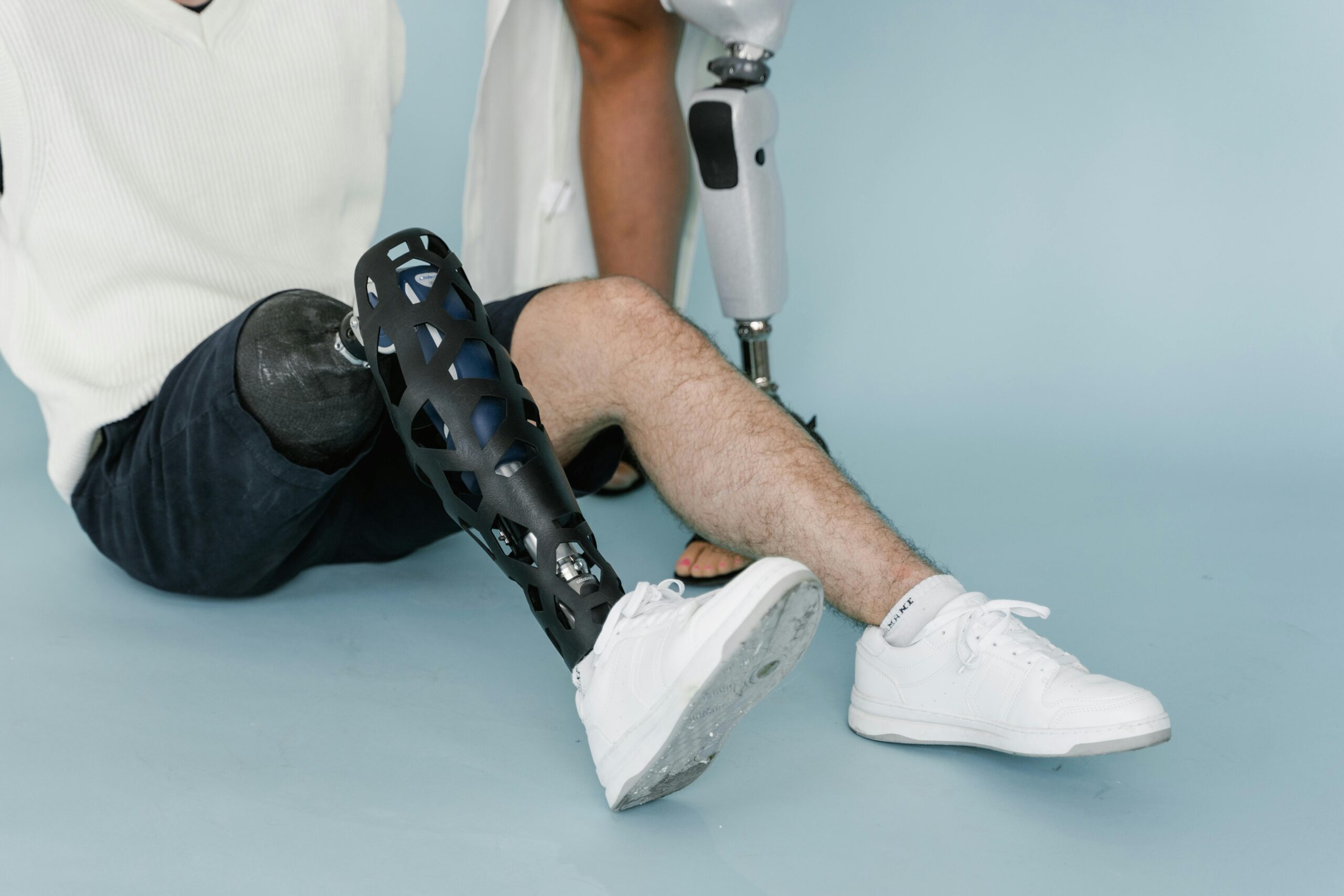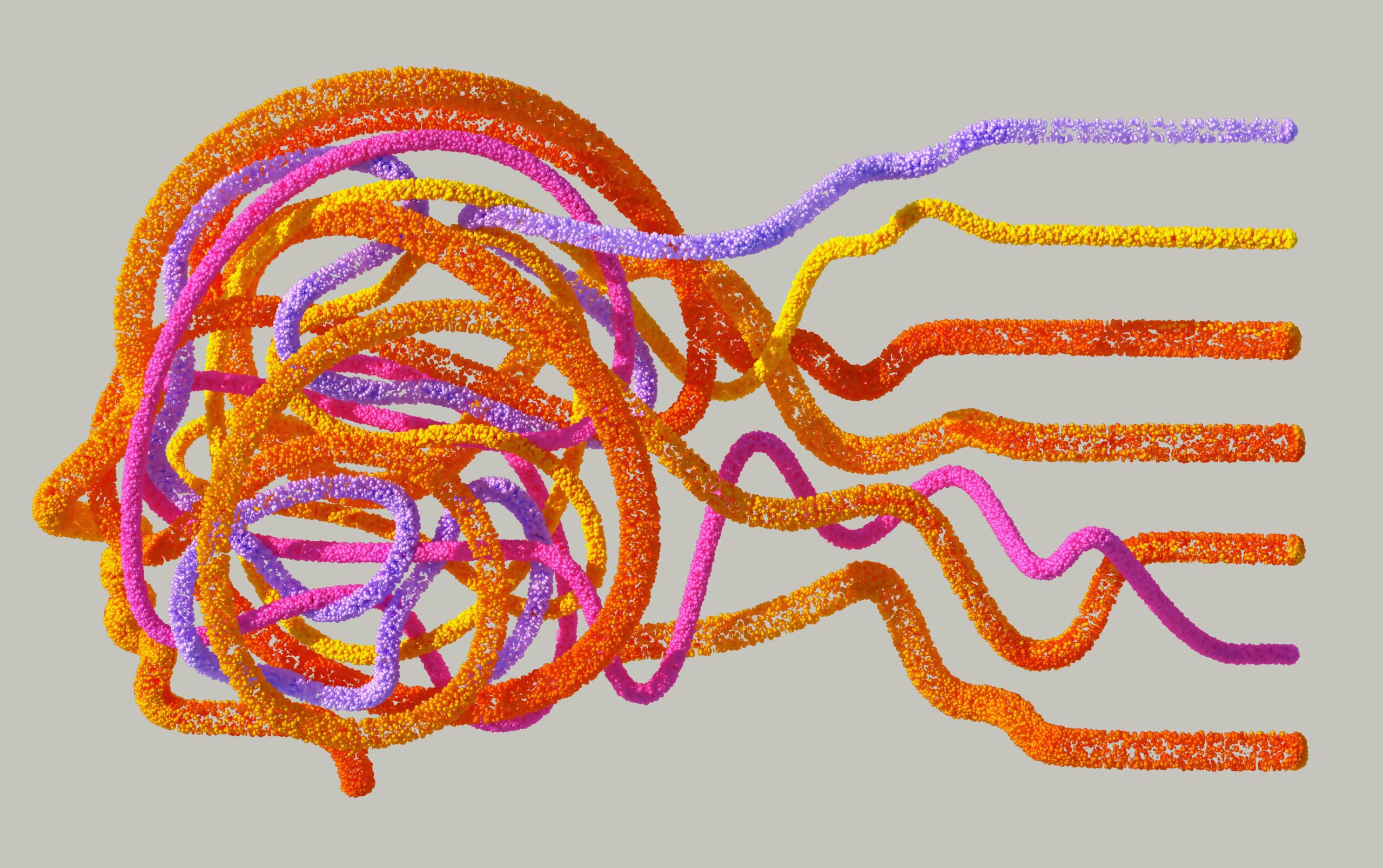The human brain, with its estimated 86 billion neurons, represents the most sophisticated computational system known to science. Yet we’re only beginning to scratch the surface of what this remarkable organ can achieve when properly optimized and enhanced.
As we stand at the intersection of neuroscience, technology, and human ambition, a revolutionary era of brain optimization is unfolding before us. From cognitive enhancement techniques to cutting-edge neural interfaces, humanity is discovering unprecedented methods to unlock mental potential that was once relegated to science fiction. This transformation isn’t just about becoming smarter—it’s about fundamentally reimagining what the human mind can accomplish.
🧠 The Science Behind Brain Optimization: Understanding Our Neural Architecture
Before we can effectively enhance cognitive function, we must understand the intricate mechanisms that govern our mental capabilities. The brain operates through complex networks of neurons communicating via electrical and chemical signals, creating what neuroscientists call neural pathways. These pathways strengthen with use and weaken with neglect, a phenomenon known as neuroplasticity.
This neuroplastic quality is fundamental to brain optimization. Research from leading institutions like MIT and Stanford has demonstrated that the adult brain remains remarkably malleable throughout life. Contrary to outdated beliefs about fixed intelligence, our cognitive abilities can be systematically developed and enhanced through targeted interventions.
Modern neuroimaging techniques such as functional MRI and PET scans have revealed how different brain regions activate during various tasks. The prefrontal cortex manages executive functions like decision-making and planning, while the hippocampus plays crucial roles in memory formation. Understanding these specialized regions allows us to design precise optimization strategies that target specific cognitive domains.
Neuroplasticity: Your Brain’s Built-In Upgrade System 🔄
Neuroplasticity represents perhaps the most exciting discovery in modern neuroscience. This biological feature means your brain constantly rewires itself based on experiences, learning, and environmental inputs. Every time you acquire a new skill or piece of knowledge, physical changes occur in your neural architecture.
London taxi drivers provide a fascinating case study. Research found that their hippocampi—the brain region responsible for spatial navigation—were significantly larger than average. This wasn’t genetic; it developed through years of memorizing complex city layouts. This demonstrates that targeted mental exercise can literally reshape brain structure.
Harnessing neuroplasticity for cognitive enhancement involves creating environments and practices that promote beneficial neural reorganization. This includes challenging your brain with novel experiences, engaging in deliberate practice, and maintaining consistent learning habits that push cognitive boundaries.
Cutting-Edge Technologies Revolutionizing Brain Enhancement ⚡
The technological revolution has brought forth an arsenal of tools designed to optimize cognitive function. These innovations range from non-invasive brain stimulation devices to sophisticated software platforms that train specific mental capabilities.
Transcranial Direct Current Stimulation (tDCS)
This non-invasive technique applies low electrical currents to specific brain regions through electrodes placed on the scalp. Research indicates that tDCS can enhance working memory, attention, and learning speed when applied correctly. Military organizations and elite athletes have begun exploring tDCS for performance enhancement, with studies showing improved reaction times and decision-making under pressure.
The accessibility of tDCS technology has expanded significantly, though medical supervision remains recommended. The technique works by modulating neuronal excitability, essentially making neurons more or less likely to fire, thereby influencing cognitive processes in targeted regions.
Neurofeedback Training Systems
Neurofeedback represents a form of biofeedback specifically focused on brain activity. Users receive real-time information about their brainwave patterns through EEG monitoring, learning to consciously modify these patterns for improved mental states. This technology has shown promise in treating ADHD, anxiety, and enhancing focus and creativity.
Modern neurofeedback systems have become increasingly sophisticated and user-friendly. Several applications now offer home-based neurofeedback training, making this once-exclusive technology accessible to broader populations seeking cognitive enhancement.
Brain-Computer Interfaces: The Ultimate Connection
Companies like Neuralink, Kernel, and CTRL-labs are developing direct interfaces between human brains and computers. While fully implantable BCIs remain largely experimental, they promise revolutionary capabilities: controlling devices with thought, downloading information directly to memory, and even brain-to-brain communication.
Non-invasive BCIs are already commercially available, enabling users to control computers, wheelchairs, and prosthetic limbs through brain signals alone. As this technology matures, the distinction between human cognition and artificial intelligence will become increasingly blurred, creating hybrid intelligence systems that leverage the strengths of both.
Pharmaceutical Cognitive Enhancement: The Nootropics Revolution 💊
The pharmaceutical approach to brain optimization has evolved far beyond caffeine. Nootropics—substances that enhance cognitive function—now encompass a diverse category ranging from natural compounds to synthetic molecules designed in cutting-edge laboratories.
Racetams, one of the earliest synthetic nootropic families, have demonstrated effects on memory formation and neuroprotection. Modafinil, originally developed for narcolepsy, has gained attention for its wakefulness-promoting effects without the jittery side effects of traditional stimulants. Silicon Valley executives and students have increasingly turned to such compounds seeking competitive cognitive advantages.
Natural nootropics offer another avenue, with compounds like Lion’s Mane mushroom showing neurogenic properties—actually promoting the growth of new neurons. Bacopa monnieri, used in Ayurvedic medicine for centuries, has demonstrated memory enhancement effects in controlled studies. L-theanine, found naturally in tea, promotes relaxation without sedation when combined with caffeine.
However, the pharmaceutical enhancement landscape requires careful navigation. Long-term effects of many nootropics remain under investigation, and individual responses vary considerably. Responsible use necessitates thorough research, medical consultation, and honest assessment of risk-benefit ratios.
Lifestyle Optimization: The Foundation of Cognitive Excellence 🌟
While technological and pharmaceutical interventions capture headlines, fundamental lifestyle factors remain the cornerstone of brain optimization. No enhancement technology can compensate for chronically poor sleep, nutrition, or exercise habits.
Sleep Architecture and Memory Consolidation
Sleep represents perhaps the most underappreciated cognitive enhancement tool. During sleep, the brain consolidates memories, clears metabolic waste products, and reorganizes neural networks. Research consistently demonstrates that sleep deprivation impairs virtually every cognitive function, from attention and memory to emotional regulation and creative problem-solving.
Quality matters as much as quantity. Deep sleep stages facilitate physical restoration and memory consolidation, while REM sleep supports emotional processing and creative insight. Optimizing sleep involves maintaining consistent schedules, creating appropriate environmental conditions, and addressing underlying sleep disorders that may compromise cognitive function.
Nutritional Neuroscience: Feeding Your Brain
The brain consumes approximately 20% of the body’s energy despite representing only 2% of body weight. This metabolic demand means nutritional inputs directly influence cognitive performance. Omega-3 fatty acids, particularly DHA, constitute essential structural components of neural membranes and support synaptic plasticity.
Antioxidants from colorful fruits and vegetables protect neurons from oxidative stress, while B-vitamins support neurotransmitter synthesis. Emerging research on the gut-brain axis reveals how intestinal microbiome composition influences mood, cognition, and even neurological disease risk, suggesting that probiotic foods may constitute genuine brain-enhancing nutrition.
Physical Exercise: Moving Your Body, Upgrading Your Mind
Aerobic exercise increases production of brain-derived neurotrophic factor (BDNF), a protein that supports neuron survival and encourages growth of new neurons and synapses. Regular physical activity has demonstrated improvements in memory, executive function, and processing speed across all age groups.
The cognitive benefits extend beyond mere correlation. Exercise increases cerebral blood flow, delivers oxygen and nutrients to neural tissue, and stimulates neurogenesis in the hippocampus. Even single exercise sessions produce measurable improvements in focus and information processing, making movement a practical cognitive enhancement tool.
Cognitive Training Platforms: Systematic Mental Workouts 💪
Digital cognitive training platforms have proliferated, offering gamified exercises designed to enhance specific mental abilities. While early claims sometimes outpaced scientific evidence, refined methodologies and rigorous research have validated certain approaches to brain training.
Working memory training, when properly designed, can produce improvements that transfer to untrained tasks—the holy grail of cognitive training. Dual n-back tasks, which require simultaneously tracking auditory and visual sequences, have shown particular promise for enhancing fluid intelligence and executive function.
Effective cognitive training adheres to specific principles: adaptive difficulty that maintains appropriate challenge levels, varied task designs that prevent narrow skill development, and sufficient training duration to produce lasting neural changes. Not all brain training apps meet these criteria, making informed selection crucial.
The Meditation Advantage: Ancient Wisdom Meets Modern Neuroscience 🧘
Contemplative practices, particularly meditation, have undergone extensive neuroscientific investigation revealing profound effects on brain structure and function. Regular meditation practice increases gray matter density in regions associated with attention, emotional regulation, and self-awareness.
Different meditation styles produce distinct neural effects. Focused attention meditation strengthens concentration circuits, while open monitoring practices enhance cognitive flexibility. Loving-kindness meditation influences social cognition networks, improving empathy and interpersonal understanding.
The accessibility of meditation makes it a democratizing cognitive enhancement tool. Unlike expensive technologies or pharmaceuticals, meditation requires no special equipment or substances—only time, instruction, and commitment. Numerous applications now offer guided meditation programs backed by neuroscientific research, making evidence-based practice available to anyone with a smartphone.
Personalized Brain Optimization: The Future is Individual 🎯
As our understanding of cognitive enhancement deepens, the field is moving toward personalized approaches that account for individual differences in genetics, neurochemistry, and cognitive profiles. What optimizes one brain may produce minimal or even negative effects in another.
Genetic testing can reveal variations in genes affecting neurotransmitter metabolism, neuroplasticity, and cognitive aging. This information enables tailored interventions—for example, individuals with certain COMT gene variants may respond differently to stimulant-based cognitive enhancers than others.
Comprehensive cognitive assessment establishes baseline performance across multiple domains, identifying specific strengths and weaknesses. This profile guides targeted enhancement strategies, focusing resources on areas with greatest potential for improvement or supporting already strong capabilities for exceptional performance.
Ethical Considerations and the Enhancement Divide ⚖️
As brain optimization technologies advance, society must grapple with complex ethical questions. If cognitive enhancement becomes widely available, will it reduce inequality by raising baseline human capabilities, or will access disparities create an enhanced cognitive elite, deepening existing social divisions?
Issues of authenticity and identity emerge when discussing direct neural interventions. If our brains are modified through implants or pharmaceutical agents, do our enhanced thoughts and abilities remain authentically ours? These philosophical questions lack simple answers but require thoughtful consideration as enhancement options expand.
Safety represents another critical concern. Long-term effects of many enhancement technologies remain unknown, creating potential for unforeseen consequences. Establishing appropriate regulatory frameworks that protect users while allowing beneficial innovation presents ongoing challenges for policymakers and medical authorities.
Building Your Personal Optimization Protocol 📋
Creating an effective brain optimization strategy requires integrating multiple approaches into a coherent, sustainable program. Begin by establishing solid foundations through lifestyle optimization—prioritizing sleep quality, nutritional excellence, and regular physical activity.
Layer targeted interventions based on specific goals and individual circumstances. If memory enhancement is your priority, combine evidence-based supplementation with spaced repetition learning techniques and working memory training. For creative enhancement, explore practices that facilitate divergent thinking, such as open monitoring meditation and novel environmental exposure.
Track progress through both subjective assessment and objective measures when possible. Maintain detailed records of interventions, dosages, and perceived effects. This data enables informed adjustment of your protocol, identifying which approaches deliver genuine benefits versus placebo effects or temporary improvements.
The Horizon: What’s Coming Next in Cognitive Enhancement 🚀
The brain optimization field continues accelerating at remarkable pace. Optogenetics—using light to control genetically modified neurons—may eventually enable unprecedented precision in neural modulation. CRISPR gene editing could potentially address genetic factors limiting cognitive function or increasing neurological disease risk.
Artificial intelligence integration represents another frontier. AI systems might analyze individual brain activity patterns, identifying optimization opportunities invisible to human observation. Closed-loop systems could automatically adjust stimulation parameters or suggest interventions based on real-time neural state monitoring.
As these technologies mature, the definition of “normal” human cognitive function will likely expand dramatically. Capabilities once considered superhuman may become commonplace, fundamentally transforming education, work, and human potential itself.

Taking Action: Your Smarter Tomorrow Starts Today 🌅
The future of brain optimization is not some distant possibility—it’s unfolding now, with practical tools and techniques available today. Whether you’re a student seeking academic excellence, a professional pursuing career advancement, or simply someone committed to maximizing their mental potential, evidence-based cognitive enhancement offers tangible pathways to improvement.
Start with the fundamentals that science has validated repeatedly: prioritize restorative sleep, nourish your brain with quality nutrition, move your body regularly, and challenge your mind with continuous learning. These unglamorous basics provide the foundation upon which all other enhancements build.
As you establish strong lifestyle foundations, thoughtfully explore advanced interventions that align with your goals, values, and circumstances. Approach cognitive enhancement with the same rigor you would any important project—researching thoroughly, starting conservatively, measuring results honestly, and adjusting based on evidence rather than hope or hype.
The human brain represents billions of years of evolutionary refinement combined with remarkable adaptability. By understanding its mechanisms and applying evidence-based optimization strategies, you can unlock capacities that enhance not just intellectual performance but overall quality of life, creativity, and fulfillment. The smarter tomorrow we envision doesn’t require waiting for future breakthroughs—it begins with the choices you make today about how you treat, challenge, and nurture the extraordinary organ between your ears.
Toni Santos is a cognitive storyteller and cultural researcher dedicated to exploring how memory, ritual, and neural imagination shape human experience. Through the lens of neuroscience and symbolic history, Toni investigates how thought patterns, ancestral practices, and sensory knowledge reveal the mind’s creative evolution. Fascinated by the parallels between ancient rituals and modern neural science, Toni’s work bridges data and myth, exploring how the human brain encodes meaning, emotion, and transformation. His approach connects cognitive research with philosophy, anthropology, and narrative art. Combining neuroaesthetics, ethical reflection, and cultural storytelling, he studies how creativity and cognition intertwine — and how science and spirituality often meet within the same human impulse to understand and transcend. His work is a tribute to: The intricate relationship between consciousness and culture The dialogue between ancient wisdom and neural science The enduring pursuit of meaning within the human mind Whether you are drawn to neuroscience, philosophy, or the poetic architecture of thought, Toni invites you to explore the landscapes of the mind — where knowledge, memory, and imagination converge.




